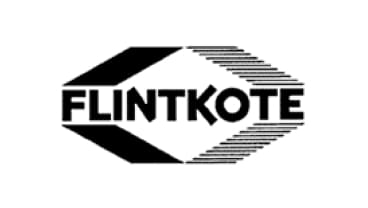The Flintkote Company
The Flintkote Company made asbestos roofing materials from the 1930s until the 1980s. Asbestos litigation caused Flintkote to file for bankruptcy in 2004. In 2015, the Flintkote Asbestos Trust was established with $214 million to compensate victims.

Flintkote’s History with Asbestos
The Flintkote Company was founded in 1901 and is best known for manufacturing roofing materials. Although the company later added other product lines, roofing remained its core industry until it closed in 1987.
For decades, Flintkote’s flagship product was asbestos roofing shingles. Asbestos was used in many products that required durability and heat resistance. Although durable, products with asbestos are dangerous if they are damaged or disturbed.
On May 15, 1982, Flintkote stopped manufacturing products that contained asbestos. Two years later, the company no longer distributed asbestos-containing products.
By then, many people had been exposed to asbestos through Flintkote’s products. Workers who developed asbestos-related diseases, such as mesothelioma, after working with the products have sued Flintkote seeking compensation to cover medical bills and lost wages.
Development of Flintkote Asbestos Trust
Flintkote’s insurance disbursed asbestos settlements and awards until 2001, when certain insurers began withholding or delaying payments. This withholding, combined with an increasing number of asbestos claims, put the company deep into debt.
In 1987, Flintkote sold its construction, stone and cement manufacturing plants to pay asbestos-related claims. However, this measure wasn’t enough for Flintkote and its subsidiary, Flintkote Mines, to pay their asbestos liabilities. Flintkote filed for Chapter 11 bankruptcy on May 1, 2004, and Flintkote Mines filed on August 25, 2004.
Disputes between Flintkote and its parent company delayed and complicated bankruptcy proceedings for a decade. Finally, in December 2015, the Flintkote Asbestos Trust started accepting claims. Using pre-established guidelines, trust representatives determine the severity of each claim and the award total.
In March 2021, the payment percentage for the trust increased from 8% to 11% of the scheduled value for expedited review and 11% of the gross settlement value for individual review.

Gain access to trust funds, grants and other forms of compensation for you or your loved ones.
Get Help NowAsbestos Litigation Involving Flintkote
Flintkote began dealing with asbestos-related personal injury lawsuits in the early 1970s. The claims came from employees and workers in various occupations who were exposed to asbestos-containing Flintkote products during their employment.
By the time it filed for bankruptcy, Flintkote had $160 million in assets and $70 million in asbestos-related liabilities. The company had already paid $630 million to resolve more than 350,000 lawsuits. Roughly 157,000 cases were pending against Flintkote, and 2,800 cases were pending against Flintkote Mines.
- In 2001, two asbestos lawsuits against Flintkote were consolidated and presented before a jury in Pennsylvania. Both of the plaintiffs filed suits claiming their husbands’ mesothelioma diagnoses were the result of working with Flintkote’s asbestos products in shipyards. The jury awarded $1 million to one plaintiff and $550,000 to the other.
Flintkote’s Asbestos Products and Workers at Risk
Asbestos-containing products manufactured by Flintkote included:
- #229 Antisweat compound
- Fibrex cement
- Weld-On cement
- Thermalkote
- Hydralt protective coating
- Rexalt roof coating
- GF-8 floor tile cement
- Vinyl floor tile
- Flooring felt
- Ceiling tile
- Asphalt
- Waterproofing
- Coatings
- Adhesives
- Sealers
- Joint cement
- Cement boards
- Roofing products
- Pipes
- Shingles
- Siding
Vinyl and asphalt floor products contained as much as 20% asbestos.
Flintkote employees who worked at manufacturing plants where asbestos products were made faced dangerous levels of exposure. Anyone who worked at a Flintkote manufacturing plant was at risk of exposure because airborne asbestos fibers moved throughout the facility.
In addition to plant workers, other occupations that may have handled Flintkote’s asbestos products include roofers, floor tilers, construction workers, insulators, plumbers, road pavers, railroad builders, car mechanics and pipefitters.
These workers were exposed to asbestos while:
- Installing flooring, roofing, piping and chimney lining
- Building residential and commercial sites
- Adding cement board, shingles and siding
- Adding protective coatings to roofs and railroad cars
- Pouring asphalt onto roadways
Flintkote’s asbestos products remain in some older buildings and homes that have not undergone renovations. Homeowners and roofers are at risk of exposure to these old Flintkote products.
Recommended Reading


